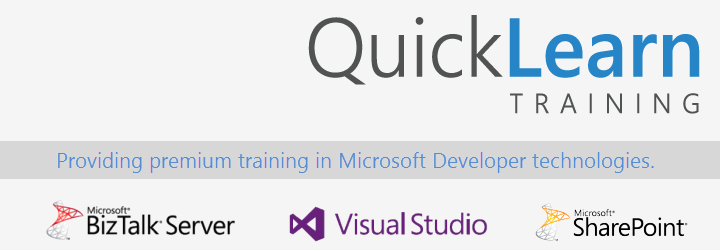QuickLearn’s lead ALM instructor and curriculum author, Anthony Borton, will be presenting a one day hands-on pre-conference workshop at the ALM Forum in Seattle in April 2014.
The ALM Forum (previously ALM Summit) is a three day event focusing on all things ALM. There is an awesome cast of speakers lined up for this year including keynotes from Scott Ambler, Steve Denning and Ken Schwaber. James Whittaker and Dave West are delivering plenary sessions as well.
The details of the pre-conference workshop are as follows.
TITLE: Managing your Application Lifecycle with TFS
DATE: Monday, March 31st 2014. (Day before conference)
ABSTRACT:
As a member of an Agile development team, you want to learn the best practices for setting up a new project on Team Foundation Server, so that your team can get the best possible start for delivering better software, more frequently.
In this workshop, attendees will start by setting up a brand new Team Project on TFS 2013 and then proceed to configure everything required to get their team ready for their first iteration.
Some of the key topics include:
- Entering our requirements and setting up our portfolio backlog
- Configuring our two teams with independent backlogs and taskboards
- Introducing the team members to the appropriate tools for their role
- Fostering collaboration using Team Rooms and adding users and events
- Preparing version control for our developers to get started
- Getting QA ready to kick off with their first test plan
- Leveraging the out of the box reports and creating ad-hoc reports
To find out more or to register visit the workshop page.
To find out more about the ALM Forum Seattle 2014, visit http://www.alm-forum.com
